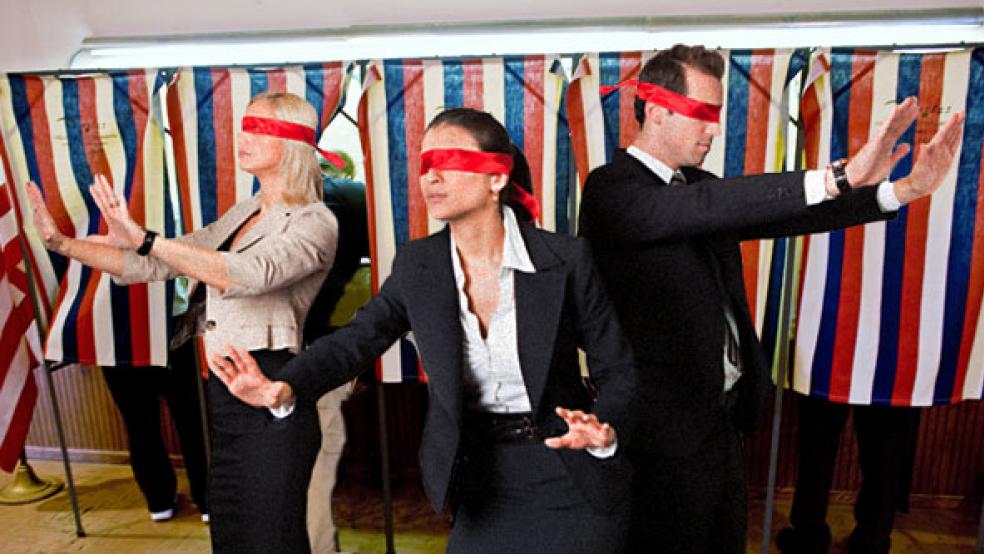Is it useful to parse the latest economic statistics like Friday’s jobs numbers to determine how it will affect the November election? Before reading too much into it, ponder this fact: A February poll by the National Foundation for Credit Counseling showed that 66 percent of workers did not realize their paychecks were larger after the government reduced the payroll tax by 2 percentage points.

That’s right. Two out of every three people did not realize they were getting a tax break that for people earning $50,000 a year amounted to a $1,000 a year raise. Given that 92 percent of people who consider themselves in the workforce have jobs, how likely is it that an 8 percent unemployment rate will have a major impact on the presidential election?
It might, of course, especially if one of the presidential candidates’ political advertising campaigns is successful in weaving that factoid into a compelling story about the future direction of the economy. Republican candidate Mitt Romney will use it to claim that President Obama’s policies have failed. Obama will respond that the country is finally digging out of the huge hole dug by the failed policies that led to the Great Recession.
But the absolute number itself and what it says about underlying economic reality? Meaningless. Public opinion experts have long known that peoples’ perceptions are far more important than the underlying reality.
10px 5px 0px; border-right-width:thin; border-right-color:#ebe9e5; border-right-style:solid" class="sidebar_box">The Fiscal Times FREE Newsletter
People’s perceptions are molded through stories, not facts. That’s why the political campaigns and SuperPACs aligned with President Obama and former Massachusetts Gov. Mitt Romney are pouring hundreds of millions of dollars into advertising to shape perceptions about the direction of the economy and where they will take it. The “facts,” such as they are, can be sliced, diced and/or pureed to fit the candidates’ needs.
Indeed, if facts mattered, why would 24 percent of people tell a CBS/New York Times poll that the Obama administration’s stimulus bill had raised their taxes and another 53 percent say it had kept taxes the same? As the fact-checking Politifact noted, over 94 percent of Americans received a $400 to $800 tax break under the bill. Yet Republicans outflanked the president in the story-telling game and convinced most Americans that the stimulus gave them nothing.
Basic misunderstanding about what is going on in the economy is not a new phenomenon. A 1996 poll by the Roper organization asked a cross-section of Americans about their basic knowledge of economic concepts. A third had no idea what progressive taxation was; 37 percent could not offer even a passing familiarity with “tight monetary policy” and 43 percent were left shaking their heads when asked about “supply side economics.”
It would appear things are getting worse. A 2003 Kaiser/NPR poll found that 56 percent of Americans never heard of the concept of “progressive taxes.” That’s not a good sign for liberals or President Obama when it comes to debating the ins and outs of tax reform.
So who’s to blame for widespread ignorance about economics? The press? Fox TV? The politicians? It turns out that people get their economic information “from friends and neighbors first,” said Karlyn Bowman, a senior fellow at the American Enterprise Institute. “They’re not thinking about policy issues in the same way as those of us in our business (meaning think tanks and journalists) are.”
The press during this election cycle has largely given up writing stories about the plight of the unemployed. Feature stories about their travails rarely show up on the evening news. And even if they did, hardly anyone's watching. Given that there’s growing economic segregation in the U.S., where more and more people are living in neighborhoods where people are basically just like themselves, the suffering of the unemployed has become an abstraction to most Americans.
There are all types of foundations and think tanks promoting economic literacy. Well-meaning groups develop curricula to spread the gospel in the schools. But the sad truth is that most people would rather tune into a reality television show that engage with a close dissection of the latest unemployment report.
Now, if Snooki lost her job, that would be a story.



